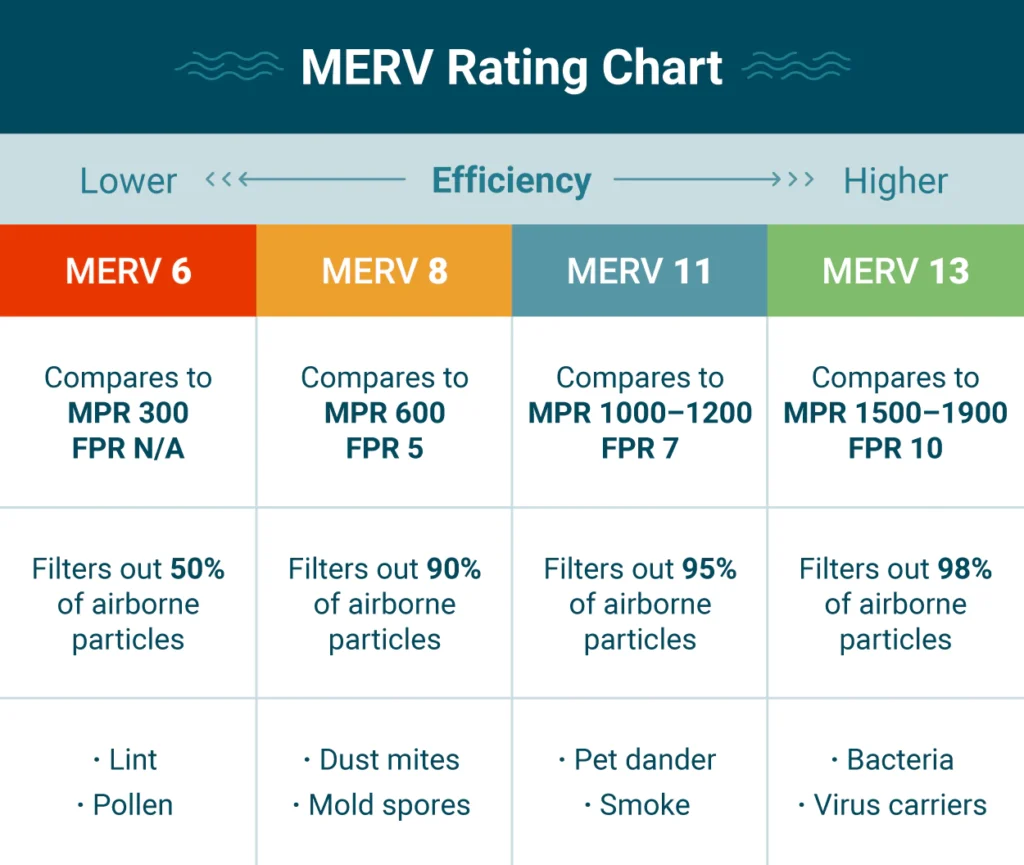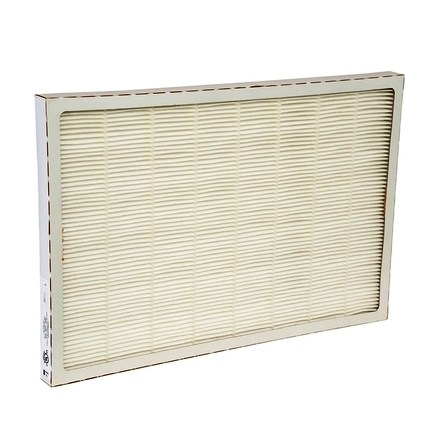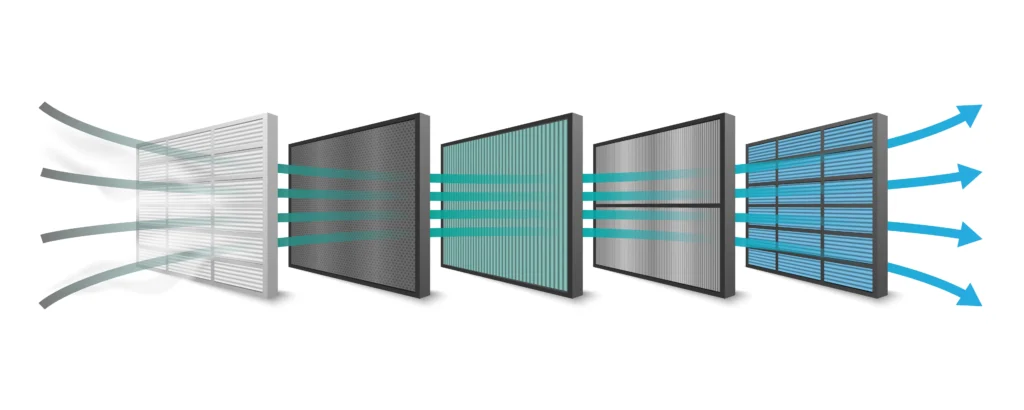MERV, or Minimum Efficiency Reporting Value, is a rating system that measures filter effectiveness in capturing airborne particles, crucial for maintaining Indoor Air Quality (IAQ). Good IAQ is vital for comfort and health, and filtration plays a key role in removing particles that can cause adverse effects. Different filtration levels may be required based on residents’ health and environmental conditions. Additionally, filtration helps maintain cleaner outdoor air by capturing pollutants before indoor air is released.
MERV Ratings Chart

Air filters are rated from MERV 1 to MERV 20 based on their efficiency in capturing airborne particles. The higher the number, the more efficient the filter is. Here is a more detailed breakdown of MERV ratings and their application:
- MERV 1-4: captures pollen, dust mites, sanding dust, spray paint dust, textile fibers, and carpet fibers. Ideal for residential window AC units.
- MERV 5-8: good for capturing mold spores, dust mite debris, cat and dog dander, hair spray, fabric protector, dusting aids, and pudding mix. Used in standard residential and commercial settings.
- MERV 9-12: Better at trapping emission particles, lead dust, milled flour, humidifier dust, legionella, and nebulizer droplets. Suitable for superior residential, better commercial buildings, and hospital laboratories.
- MERV 13-16: can filter bacteria, droplet nuclei (sneeze), cooking oil, most smoke, insecticide dust, most face powder, and most paint pigments. These are typically used in general surgery, hospitals, and superior commercial buildings.
- MERV 17-20: the highest range, capable of filtering viruses, carbon dust, sea salt, and smoke. These are used in pharmaceutical manufacturing, and facilities like HEPA-filtered clean rooms.
What is HEPA?
HEPA which stands for High-Efficiency Particulate Air is not classified within the MERV rating systems. While HEPA filters are sometimes informally equated to a MERV rating of 17 or higher due to their high efficiency, they are not officially rated on the MERV scale because they exceed the minimum performance measurement of that scale. HEPA filters are designed to capture at least 99.7% of particles that are 0.3 microns in size. They are commonly used in hospitals, clean rooms, and other environments where airborne contaminants must be minimized.

Venmar X Series 22528 HEPA Filter (For more HEPA filters click HERE)
What MERV rating should I choose?
When selecting the best MERV rating for your air filters consider the following factors:
- Air Quality Needs: Assess the specific air quality requirements of your environment. If someone in the household has allergies or asthma, a higher MERV rating may be beneficial.
- HVAC System Compatibility: Ensure that your HVAC system can handle the increased airflow resistance that comes with higher-rated filters.
- Pollutant Levels: Choose a MERV rating based on the level of pollutants typically present in your indoor environment.
- Allergen Sensitivity: For individuals with allergies or respiratory issues, higher MERV ratings can help reduce indoor allergens.
- Replacement Frequency: Consider how often you are willing to replace the filter. Higher MERV filters may need to be changed more frequently.
- Energy Consumption: Higher MERV ratings can lead to increased energy use due to the thicker filter media and reduced airflow.
- Cost: Higher MERV-rated filters are generally more expensive. In addition to this initial cost, as mentioned above, they need to be replaced more frequently and they might lead to higher energy bills. Ultimately, you have to weigh the health benefits of cleaner air against the cost of the filter.

